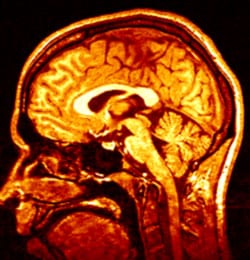Untangling the teenage brain
By Clare S Ryan, on 15 September 2011
Professor Sarah-Jayne Blakemore is a cognitive neuroscientist who researches something many of us find mysterious – the teenage brain. She believes that our adolescent years are a period of great change in terms of brain activity and being able to untangle what is going on could have wide-ranging implications for education. I went along to her lecture at the British Science Festival to find out more.
 A newborn baby has nearly the same number of brain cells as an adult, an astounding 100 billion. The difference, as you might already know, are the connections between the nerve cells, or neurons, which change massively over the course of a person’s life.
A newborn baby has nearly the same number of brain cells as an adult, an astounding 100 billion. The difference, as you might already know, are the connections between the nerve cells, or neurons, which change massively over the course of a person’s life.
 Close
Close

